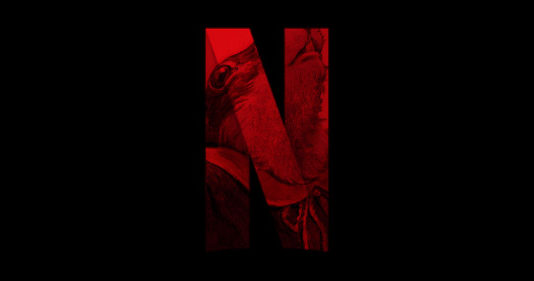“Let’s go, chaps! Eulalia!” If you’re reading this and wondering what’s gotten into me, keep reading please! But if you, like me, lived in Mossflower Woods or on the mountain of Salamandastron as a child, you’ll know exactly what I am referencing—The Tales of Redwall, a 22-book fantasy series written by Brian Jacques.
I pretend to be a geek, but I’m really more of a nerd—I love books more than I do games, and I tend to prefer fantasy to sci-fi. That’s why I was cautiously optimistic and excited when news broke that Netflix acquired the rights to Brian Jacques’ series. Netflix will be releasing a movie based off of the main book, Redwall, and a t.v. series starring Martin the Warrior. Patrick McHale will be writing the script for the movie.
Netflix is the first company to acquire film rights to all 22 books, so they’d better not screw it up. All nerds know that the book is better, but there have been some great adaptations of favorites onto screens, like the Lord of the Rings trilogy. There have also been some horrifying desecrations of beloved stories, such as the Hobbit trilogy. (Why is it even a trilogy?! Better save that for another article…)
The Story
If you’re still lost, thank you for bearing with me this far! Allow me to introduce you to the best part of my childhood. The Redwall series is published as children’s fantasy. Redwall Abbey is the main focus of most of the books. There are no humans in the books, though the titular book does reference a “horse-drawn cart,” the main villain is “a Portuguese rat,” and there is a scene in a barnyard.
The Abbey has been constructed and is inhabited by woodland creatures—mice, squirrels, hedgehogs, moles, and otters make up the main population. They live peaceably unless threatened by vermin—rats, weasels, stoats, foxes, the occasional cat, and other such predators. Badgers are rare, but there’s usually one or two in each book. Badgers are similar to Aslan, in a way—big, strong, and good, but sometimes unpredictable.
The mountain of Salamandastron is always ruled by a badger, who leads a military organization of hares dedicated to protecting the Western Shores and coming to the aid of Redwall Abbey when needed. There are quests, puzzles, treasure hunts, and other adventures in each book. There is always a conflict between good and evil, and good always wins by the end of the book.
Religious Themes in Redwall
Brian Jacques, being a Roman Catholic, was no doubt influenced by Christian themes, much like J.R.R Tolkein and C.S. Lewis. While I wouldn’t say that Redwall contains allegories like the works of Tolkein or Lewis do, the whole premise of Redwall Abbey does suggest a religious order of sorts. There is an Abbott or Abbess who leads the Abbey, there is an infirmary, and all of the creatures in the Redwall Order are known as brother or sister. They live by a code that tells them not to harm others unnecessarily, and to help all in need. But there is no mentioned deity, and the inhabitants don’t really participate in any rituals.
Jacques included lots of poems and songs in his books, and occasionally would include “grace” before a feast. They mention “Mother Nature,” “Fortune,” and other generic ideas. It never seems emphasized, and it never bothered my conscience because the stories were about fictitious animals—what need have they for salvation and accurate theology?
Book Series: Parental Guide
The vermin (villains) will occasionally use brash language, referencing “Hell’s teeth” “Hell’s gates,” the devil, or cursing/damning someone. It is only used by villains, and only sporadically. Most often, they use made up curses. There is no discussion of Hell as a place, though, and there are no demons or appearances of the devil in any form. If I recall correctly, the titular book Redwall uses these the most; later releases use them far less.
There is reference to the Abbey’s original champion, Martin the Warrior, in nearly every book. He often appears to a creature in a vision to warn them of danger or to send them on a quest. There are many battle scenes, and both good and bad characters die. The deaths are not particularly gory, and the death of a good character often has a heart-wrenching scene surrounding it. Even though I know it’s coming, there are some death scenes of favorite characters that still make me cry!
As a parent, I personally would have no qualms about my son reading these books as he gets older. The questionable portions mentioned above can lead to great discussions about what other people believe in, and how we should live differently as Christians. The rest of it has wonderful themes of good vs. evil, hope, comraderie, and the like.
Closing Thoughts
My introduction to Redwall actually came from the animated series that PBS released in the early 2000s, before I knew how to read. I watched the show with my older brothers and I loved it. We also listened to some of the audiobooks on cassette in the living room. As soon as I could make my way through complex sentences, I grabbed the first Redwall book I could find and stumbled through it. It happened to be Marlfox, possibly the longest and most advanced, but my first-grade self enjoyed what I understood of it. Over time, the books became a family favorite that all enjoyed, and we passed them around over and over again. I would pick up a book and ask my siblings to quiz me on that particular book, questions such as the main hero, villain, and major plot points. If I didn’t know it well enough, that was a sign to read it again! I’ve read all 22 books a minimum of 5 times each. They are children’s novels, but each one is easily 350-400 pages.
So it’s a bit of a understatement to say I’m exited to review the coming movie and series!
Did you enjoy the Redwall books too? Let me know what your favourite parts were in the comments below and we can nerd out about it!


